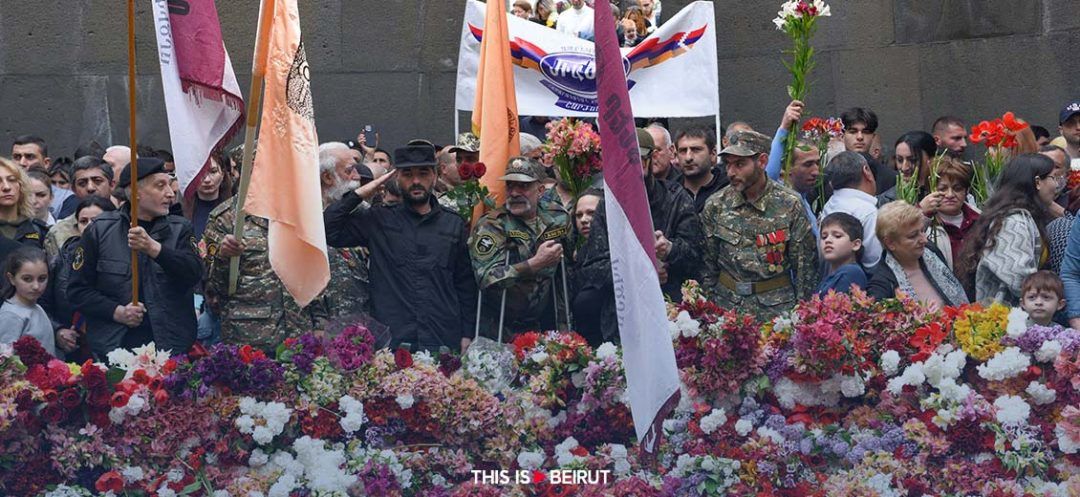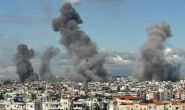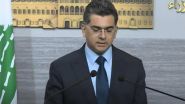
The members of Lebanon's Armenian community observe this April 24, as they do each year, the commemoration of the genocide perpetrated against their ancestors in the early 20th century, in steadfast adherence to their collective memory which stands firm against the passage of time.
These atrocities perpetrated by the Ottoman Empire began in 1915 and persisted until 1918, claiming the lives of no less than 1.5 million Armenians alongside 750,000 Assyrian-Chaldeans and Syriacs and over 350,000 Greeks.
This multi-faceted genocide precipitated the formation of a significant Armenian community in Lebanon which swiftly integrated into society while concurrently becoming a vital component of Lebanese pluralism.
Alongside the Assyrians, Chaldeans and Syriacs—constituting a minority with scant resources—Armenians managed to preserve their distinct identity, leveraging the diverse fabric of local society and the communal political system deeply entrenched in the nation's reality since the 19th century.
Like others, the Armenian community safeguarded and managed its social, economic, cultural, educational, academic, sports and media institutions, along with its political entities, without compromising its allegiance to Lebanon or loyalty to the central state.
Remarkably, and more so than in any other Arab nation, the Armenian community preserved its language, profound religious traditions and social customs, playing a significant role in the development of vital economic sectors in the country.
Notably, all these contributions were made within the framework of a pluralistic "Lebanity," historically defining the uniqueness of Lebanon in the region. In this context, the Armenian "case" study represents a distinctive adaptation, harmoniously reconciling pluralism with integration into local political and public life.
Regrettably, this pluralism faces severe threats today from centrifugal projects linked to regional hegemonic ambitions which disregard Lebanese realities and specificities. These realities, rooted in liberalism, private initiative, global openness, respect for humanistic values, public and individual freedoms and imperfect yet existing democratic practices, offer opportunities for expression to the population.
As we commemorate the 109th anniversary of the Armenian genocide, it is crucial to underscore once again that Lebanon's true essence—its indispensable social-community and cultural pluralism—is under attack by a malevolent deconstruction strategy. The latter aims to satisfy the insatiable appetites of those seeking to impose, manu militari, a regressive, obscurantist lifestyle rooted in outdated values and social criteria.
The Armenian community's experience, alongside others, in navigating Lebanese pluralism serves as a case study. Here, the challenge lies in reconciling Lebanity with preserving the socio-cultural specificities of Lebanon's diverse communal components, provided regional actors cease turning Lebanon into a theater of sterile and destructive maneuvers and confrontations bared by its population.
Read more




Comments